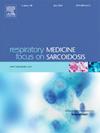Outcomes in lung transplant recipients on azathioprine compared to mycophenolate
IF 3.5
3区 医学
Q2 CARDIAC & CARDIOVASCULAR SYSTEMS
引用次数: 0
Abstract
Intro
A three-drug immunosuppression regimen to prevent graft loss is the cornerstone of therapy following lung transplantation. Direct comparisons between maintenance regimens including mycophenolate (MMF) and azathioprine (AZA) are limited in the lung transplant population.
Methods
We completed a retrospective cohort study of adult (≥18 years of age) lung transplant recipients at Mayo Clinic (Rochester, MN) from January 1, 2009 through July 1, 2022 and compared outcomes in patients on AZA vs MMF. Our primary outcome was clinically significant acute cellular rejection. Secondary outcomes included graft loss, drug interruption, chronic lung allograft dysfunction (CLAD), and infection. Analyses were performed with Multivariable Cox Regression with transplant era and induction immunosuppression agent as covariables.
Results
224 patients were included, 88 on AZA and 136 on MMF. The risk of clinically significant rejection was greater in the AZA group compared to the MMF group (HR, 1.76; 95 % CI 1.12–2.79; P = 0.02). Medication interruption was also higher in the AZA (HR, 1.47; 95 % CI 1.04–2.08; P = 0.026). Rates of CLAD, graft loss, and infection were similar between the groups.
Conclusion
In this cohort, MMF was associated with lower risk of clinically significant acute cellular rejection and drug interruption when compared to AZA. Similar rates of CLAD, graft loss, and infection were observed.
求助全文
约1分钟内获得全文
求助全文
来源期刊

Respiratory medicine
医学-呼吸系统
CiteScore
7.50
自引率
0.00%
发文量
199
审稿时长
38 days
期刊介绍:
Respiratory Medicine is an internationally-renowned journal devoted to the rapid publication of clinically-relevant respiratory medicine research. It combines cutting-edge original research with state-of-the-art reviews dealing with all aspects of respiratory diseases and therapeutic interventions. Topics include adult and paediatric medicine, epidemiology, immunology and cell biology, physiology, occupational disorders, and the role of allergens and pollutants.
Respiratory Medicine is increasingly the journal of choice for publication of phased trial work, commenting on effectiveness, dosage and methods of action.
 求助内容:
求助内容: 应助结果提醒方式:
应助结果提醒方式:


